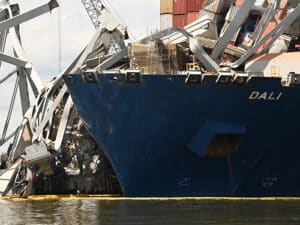
Time for cruise lines to swap out first-generation BWTS?
Written by Nick Blenkey
Bio-Sea BWTS
French UV-based water treatment specialist Bio-UV Group has secured a contract with Columbia Cruise Services to retrofit a Bio-Sea ballast water treatment system to aa 28,890 gt cruise ship.
Installation and commissioning will take place during the vessel’s scheduled drydocking in Europe this September.
A modular Bio-Sea B01-0085 system with an 85 cu.m/h flow rate will replace a competitor’s first-generation UV-type ballast water system currently installed.
With the shipset to call at San Francisco next year, the competitor system needs to be replaced with a system compliant with U.S. Coast Guard ballast water management system (BWMS) requirements.
Ludovic Rouzel, BWT Contracts Manager, Bio-UV Group, said: “We are delighted to retrofit Bio-Sea to this vessel, our first reference with this cruise line.
“Operators of cruise ships fitted with first-generation BWTS technology and which are revising their cruise itineraries to include U.S. ports of call will need to upgrade (when possible) or replace these systems with USCG-approved units before they can enter U.S. waters. We are discussing similar retrofit projects with a number of cruise lines.”
In March, Bio-UV Group successfully completed the retrofitting of a modular 450 cu.m/h capacity Bio-Sea unit in a 22,400 gt cruise ship
“This was a very successful project for Bio-UV Group which worked closely with the shipyard fromhe outset,” said Rouzel, adding: “This was the shipowner’s first experience of a BWTS retrofit but the installation and commissioning went very smoothly.”
Since its market introduction in 2013, Bio-UV Group has supplied some 187 Bio-Sea units to a range of ship types, including cruise ships, ferries, mega-yachts, containerships, fishing and offshore support vessels, dredgers, and cable layers.
It is the cruise ship market that Bio-UV Group has a particular focus on, however, having already established a solid reputation for system reliability, performance and cost-efficiency in the segment.
Xavier Deval, Bio-Sea Business Director, said: “According to analysts, the number of cruise ships is set to increase from the 314 vessels currently in service to more than 550 vessels by 2027. The emergent expedition cruise sector also provides significant opportunities for Bio-Sea’s smaller capacity units with flow rates between 10 and 90 cu.m/h.
“We also anticipate strong growth in the retrofit market as operators begin to replace non-compliant first-generation systems with those that are approved to meet USCG and IMO D8 standards.”
Earlier this year, Bio-UV signed contracts for skid-mounted Bio-Sea 300 cu.m/h capacity units for installation in eight newbuild cruise ships.




